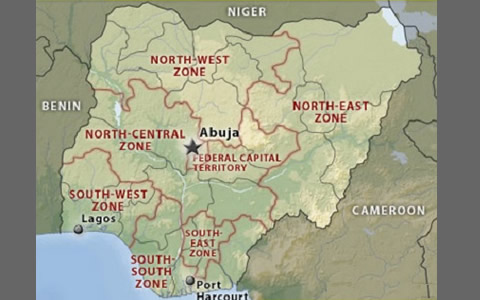Nigerians in the UK have decried the lack of “Fair Trade” label on Nigerian products in supermarkets across the country.
The concern is against the backdrop of increased patronage for agricultural produce mostly from Cameroon, Ghana and Côte d’Ivoire under the Fair Trade Movement, which empowers farmers.
The trade, according to a report, is economically rewarding to land owners.
It focuses on exports from developing countries to developed countries, most notably handicrafts, coffee, cocoa, sugar, banana and honey, among others.
Some, who spoke to the Europe Correspondent of the News Agency of Nigeria on Wednesday in London, raised the question of internal monitoring of the trade principle and standard for transaction.
Kayode Adelaja, an engineer, said that sales of organic products were steadily increasing, and so was organic production in many developing countries.
Adelaja said: “But while farmers in places like Ghana are being recognised through the fair trade system, Nigeria is left behind.
“If you look around, you will hardly see anything labelled from Nigeria.
“What is really the problem?
“Is it that we do not export anything again?”
NAN reports that fair trade is an organised system, which enables producers in developing countries to make better trading conditions and promote sustainable land use.
An nternational labelling organisation, which monitors the system, sets standards for fair trade.
Rekiya Amosun, a member of the Central Association of Nigerians in the UK, said that the development showed the state of the nation’s agriculture sector.
Amosun said: “If there are no many fair trade labelled Nigerian produce in the UK, it shows something.
“It shows how much work we need to do as a nation to get agriculture back on track.
“Most of the countries with such label produce do not have oil, so agriculture is their main stay.
“However, we have the potential to also make agriculture a major revenue earner.
“In Nigeria, we even produce more banana, groundnut and palm oil than other countries.
“Yet it goes into wastage because of lack of technical knowhow on value addition to agriculture.”
Others who spoke to NAN called on government to focus on achievable goals in reforming the nation’s agriculture sector.
They said emphasis should be placed on value added agriculture, with the goal of increasing economic value of commodity through particular production processes.
Similarly, Henrietta Abraham, the President of Nigerians in Diapora, UK South, said that packaging still remained a challenge to export of Nigerian produce.
Abraham said: “For instance, if you see the way bananas are handled, they get soft and go bad even before export.”
Abraham said that international trade was highly competitive and urged government to ensure standardisation of produce for export.
Fair trade label shows Nigeria’s produce on decline in UK – Report
Previous ArticleAliyu submits seven bills to assembly for scrutiny
Next Article NHF: FMBN collects N134.1b in 22 years – MD


